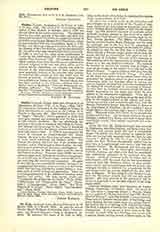

Delfino, PIETRO, theologian, b. at Venice in 1444; d. January 16, 1525. He entered the Camaldolese Monastery of San Michele at Murano, and in 1479 was elected abbot of the same community. The following year he was made general of the order and held that office until the year 1513 when he resigned in favor of his fellow-countryman Blessed Paul Giustiniani, whom he had invested with the Camaldolese habit in 1510. Delfino was the forty-sixth general from St. Romuald, the founder of the Camaldolese, and the last elected for life, the office after him being held for three years only. In 1488 he received the votes of his countrymen in Venice for the cardinalate, but refused to accept this dignity from Innocent VIII. The letters of Delfino, which number more than four thousand, addressed to different religious of his own and other orders and to various secular dignitaries, are valuable not only on account of the trustworthiness of their author, but more especially because of the accounts they contain of contemporary events in his own order and the Church in general. A collection of his Latin letters was published at Venice in 1524. Several others that had been omitted in the Venetian editions were included later in Martene’s “Veterum Scriptorum amplissima collectio”. The “Apothegmata Patrum” and the “Dialogues” on Savonarola are still unedited.
STEPHEN M. DONOVAN.

